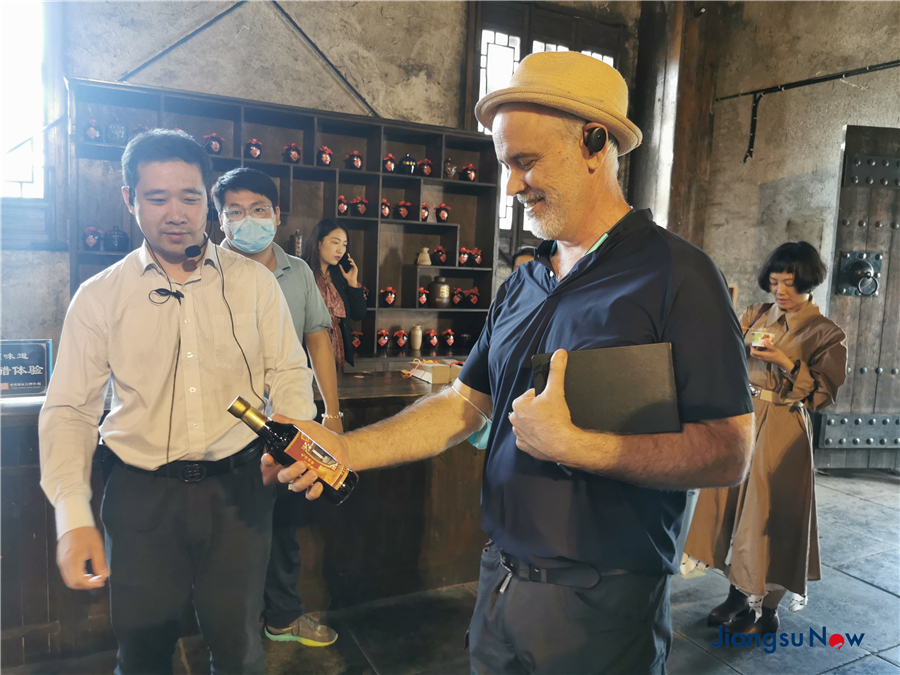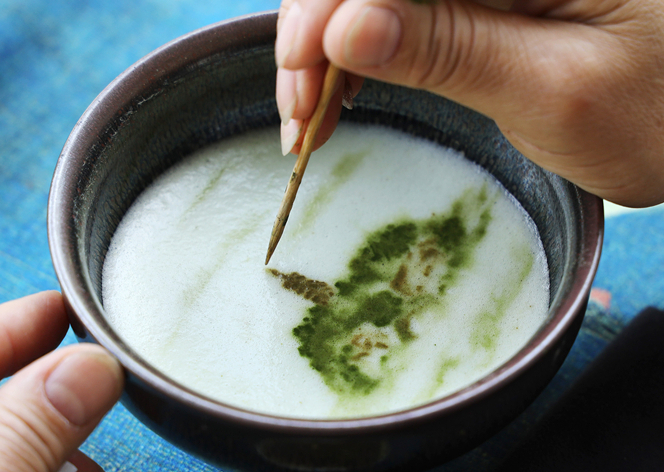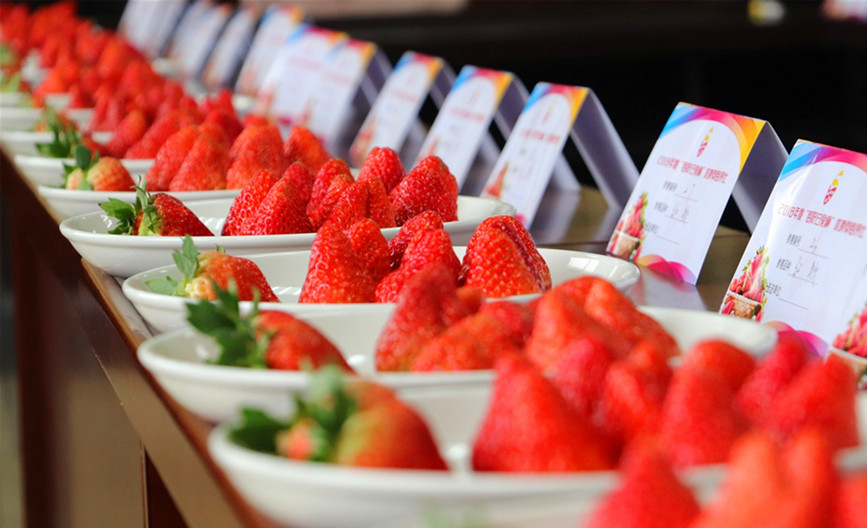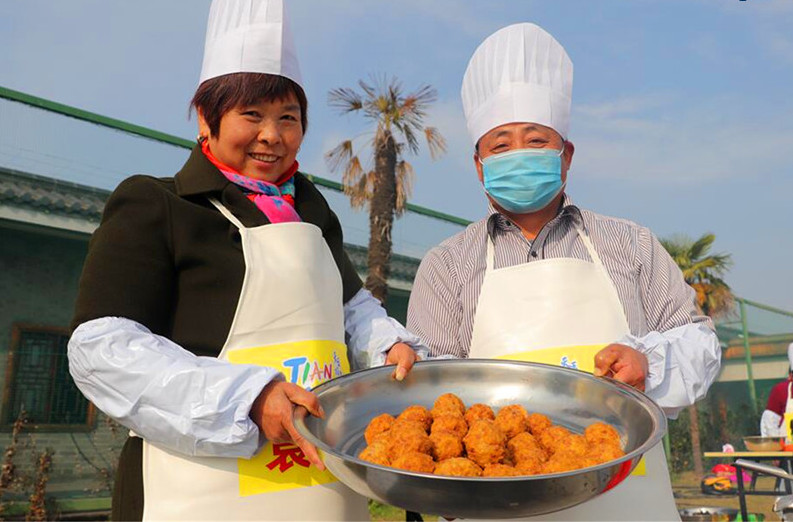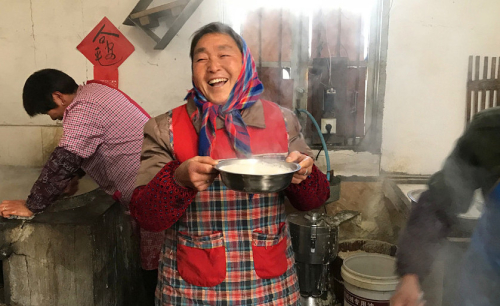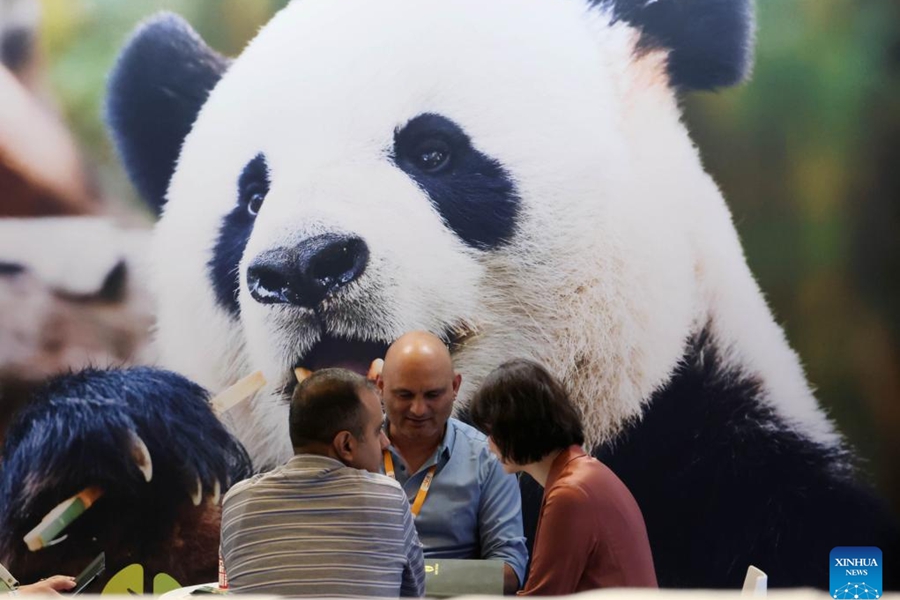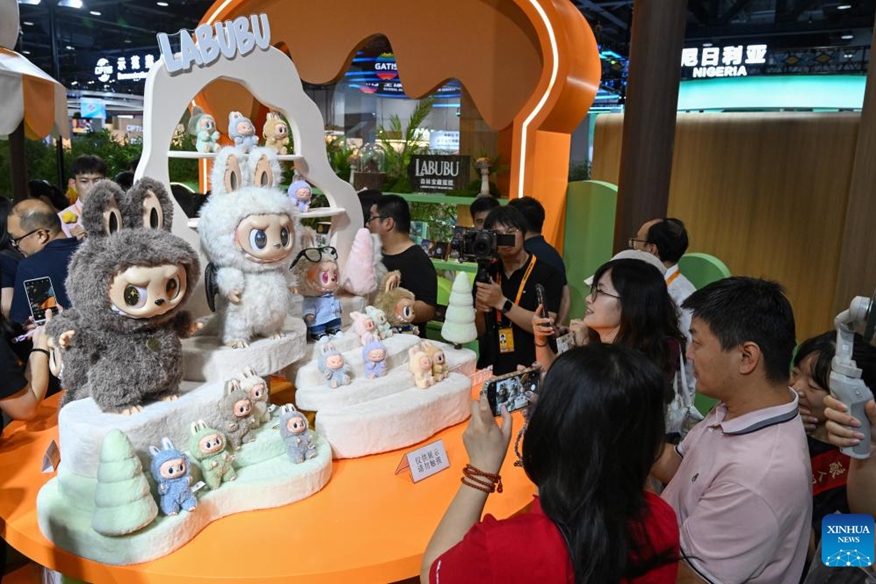Cuisine
The SHOW JIANGSU photography event, organized by the Information Office of the Jiangsu Provincial People’s Government and the News Information Center of Xinhua News Agency, was launched in Zhenjiang City on October 12.
[Detail]
Zhou Mingbo, a master of tea-whisking technique of Song Dynasty (960-1279), introduces the ancient technique during a livestreaming in Zhenjiang City, Jiangsu Province, May 24. It was also part of the activities that Zhenjiang agricultural and rural bureau held to celebrate the International Tea Day.
The ancient ways of enjoying tea in Song era were significantly different from today’s practices. At that time, tea was primarily prepared using the whisking method that combined eight steps such as pouring and dripping. This technique was inscribed as an intangible cultural heritage in Runzhou District of Zhenjiang City in January 2019.
[Detail]
Thirty-eight strawberry growers present their best products in a competition in Baitu Town , Zhenjiang City , December 26 .[Detail]
Chefs from 17 villages in Tianwang Town of Jurong City , Jiangsu Province participated in a cooking contest on November 25.[Detail]
Feb. 10 marks the 25th day of the 12th lunar month in China, on which day tofu should be made for the Spring Festival according to China’s folk traditions.[Detail]
The smell of vinegar will greet you when you enter into Zhenjiang Hengshun Vinegar Factory.
Zhenjiang Hengshun Vinegar Factory was founded in the Qing Dynasty(1840),which is the cradle of Chinese vinegar industry.
It is also among the list of first batch National Intangible Cultural Heritage.
Hengshun vinegar,to be produced,needs more than 40 procedures and takes over 60 days.
It`s five unique characteristics.
[Detail]
Yanchun Jiulou(宴春酒楼)Among the locals,the most famous restaurant in town is the Yanchun Jiulou,on an alley just north of Daxi Lu,a short way east of the former British Consulate.
This area of the old town also contains numerous noodle and dumpling shops.
For fast food Chinese style-try the food street down a small alley one block south of and parallel to Zhongshan Dong Lu,to the west of the Guoji Hotel.
[Detail]
Zhenjiang cuisine belongs to the Huaiyang cuisine(one of the four cuisines of China).In general,Jiangsu cuisine's texture is characterized as soft,but not to the point of mushy or falling apart.
Other characters include the strict selection of ingredients according to the seasons,emphasis on the matching color and shape of each dish and emphasis on using soups to improve flavors.
Three strange things stands for the salted pork in jelly which is not a dish,the vinegar that won’t deteriorate and the pot cover floating in the noodles pot.
[Detail]
Guogai noodles(锅盖面)。
Most restaurants in the city serve guogai,a local treat of noodles that are thin and soaked in soy.
[Detail]
It is best known for the“three fishes,two heads and three strange things”.Why not come and find out the special features of Zhenjiang food with your own eyes and mouth?
Three strange things means that salted pork in jelly is not a dish,the vinegar won’t deteriorate and pot cover floating in the noodles pot.
This is one of the“three strange things”。
This area of the old town also contains numerous noodle and dumpling shops.
For fast food Chinese style-try the food street down a small alley one block south of and parallel to Zhongshan Dong Lu,to the west of the Guoji Hotel.
[Detail]
- ·Legislative bodies from Jiangsu, Japan and Republic of Korea meet in Yancheng
- ·Jiangsu Foreign-related Legal Service Center opens in Nanjing
- ·Jiangsu builds China’s most comprehensive energy-storage management system
- ·Yancheng hosts World Coastal Forum
- ·Jiangsu sends new medical teams to Zanzibar, Guyana and Malta
